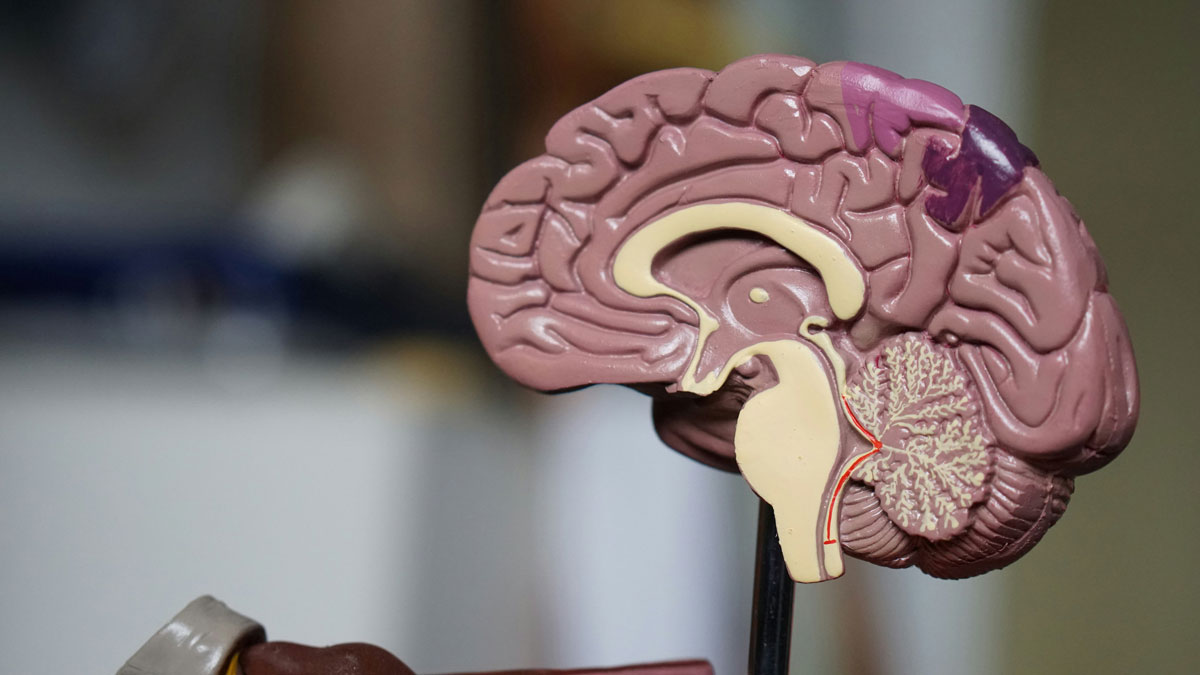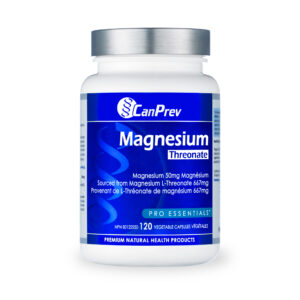You may know that magnesium is an essential mineral for your health. But did you know there are many different types of magnesium? Magnesium threonate (MgT) is known as the “brain magnesium”, and it’s gaining popularity for good reason. The brain is protected by something called the blood brain barrier, which can make it difficult for nutrients to pass. That’s where MgT comes in. Studies suggest that it may cross the blood brain barrier, potentially bringing the benefits of magnesium to brain cells more effectively than other forms. Let’s look at how MgT might work for boosting brain health.
Magnesium in a nutshell
Magnesium itself is essential in over 800 different enzymatic functions in our body. To name a few, it helps:
- Synthesize DNA
- Maintain muscle function
- Create cellular energy
- Ensure proper nerve function
Magnesium’s important functions in the brain include nerve signal transmission and maintaining ionic stability. As part of these functions, magnesium is considered an antagonist of calcium. Too much calcium in brain cells can overstimulate cells and potentially harm neurons, which can lead to further neurodegenerative outcomes. Magnesium helps move calcium along in the brain to best support learning and memory function, but it can be difficult to get magnesium into the brain because of what’s known as the blood brain barrier. The good news is that with some help from threonic acid, magnesium may have a better chance of crossing this barrier.
What is magnesium threonate?
Magnesium threonate is a compound that’s created when magnesium is bound to threonic acid, a metabolite of vitamin C. While it’s believed to have good bioavailability in the gut, its unique potential to cross the blood-brain barrier makes it particularly interesting for cognitive health and neurological function. This makes it the ideal magnesium choice for those with high cognitive demands.
But what exactly is the blood brain barrier?
A wall of protection
The body’s entire blood supply is pumped through the brain every 7 minutes, so there needs to be a reliable filtration system to keep out harmful bacteria, toxins and pathogens that could compromise brain health. That’s where the blood-brain barrier (BBB) comes in. It’s a single layer of mostly endothelial cells within a microenvironment that lines the blood vessels in the brain.
Supporting the microenvironment
Endothelial cells line the interior surface of blood and lymphatic vessels. They form a tight barricade that carefully controls blood flow and the passage of nutrients and waste, while also maintaining the health and security of the vessel walls. This all takes place inside the brain’s microenvironment, a habitat consisting of the BBB, glial cells which support and protect neurons (also known as the “glue” of the nervous system), cerebrospinal fluid which cushions and nourishes the brain, and extracellular matrix proteins that provide structural support and signal cell growth and function. Together, these elements create a stable, protective, and nurturing environment essential for optimal brain function.
Inflammation and brain health
Inflammation occurs when your immune system reacts to something it sees as harmful or unfamiliar in your body, like an infection or injury. This response causes redness, swelling, and pain as your body tries to fight it off. But when the inflammation is chronic, the immune system sometimes goes haywire and starts attacking healthy cells, too. This can lead to serious long-term health problems like autoimmune disorders, and is even linked to neuroinflammatory diseases like multiple sclerosis, Alzheimer’s, and Parkinson’s. Inflammation is caused by a number of factors such as stress and anxiety, bacteria and viruses, poor diet choices, and even pollution. It is possible to ease inflammation with the right nutrients, so try limiting processed foods, sugar, and refined grains, and incorporating these brain-healthy, anti-inflammatory foods into your diet:
- Fruits and vegetables
- Whole grains like oats, brown rice, and quinoa
- Omega-3 sources like fatty fish and flaxseeds
- Almonds, walnuts, and chia seeds
- Turmeric, ginger, and garlic
- Green tea
Magnesium can help reduce inflammation in the body by calming immune cells and limiting their excessive activity. It also works to block the release of certain substances that cause inflammation, helping to keep the immune response balanced and under control. When it comes to brain health, magnesium threonate may pass the blood brain barrier to help deliver this beneficial effect to the brain while also supporting other cells throughout the body. CanPrev’s Magnesium Threonate provides 50mg of magnesium sourced from magnesium L-threonate to help in energy metabolism, tissue formation, muscle function, and overall health.
Magnesium threonate can provide some unique benefits for brain health, while still getting all the benefits of magnesium offers for better sleep, stress management, cell synthesis, bone health and more. Its ability to potentially cross the blood-brain barrier sets it apart from other forms of magnesium, offering enhanced neuroprotective effects that may support cognitive function and neurological health, and help ensure your brain receives the nutrients it needs to thrive!
Sources:
Magnesium and the Brain: A Focus on Neuroinflammation and Neurodegeneration
Hitting a Wall
How the Brain Works: The Facts Visually Explained
Role of the blood-brain barrier in the nutrition of the central nervous system
Transport of nutrients and hormones through the blood-brain barrier
Sleep and Magnesium: Threonate or Bisglycinate?
What Are Glial Cells and What Do They Do?
The extracellular matrix at a glance
The blood-brain barrier in systemic infection and inflammation
Inflammatory effects of particulate matter air pollution
Systemic Inflammation and the Brain: Novel Roles of Genetic, Molecular, and Environmental Cues as Drivers of Neurodegeneration
Neuroinflammatory diseases








Leave A Comment